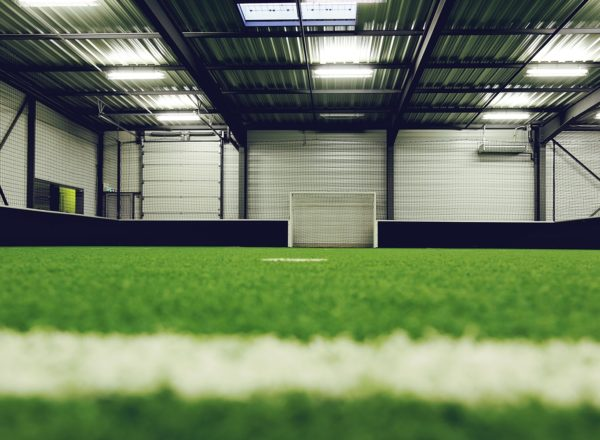What Type of Soccer Ball Do I Use Indoors?

Tue Mar 12 2024
Table of Contents
- Futsal
- Indoor Turf
- Indoor Hard Court
- Weight and Material
- Personal Preference
- Elevating Your Indoor Soccer Experience with the Right Ball
As the popularity of indoor soccer continues to soar, players find themselves faced with a unique set of considerations when it comes to choosing the right soccer ball. From the fast-paced courts of futsal to the controlled environments of indoor turf and hard courts, the type of ball you use can significantly impact your playing experience. In this article, we’ll unravel the mysteries of indoor soccer balls, helping you make an informed choice based on the type of indoor soccer you’re gearing up for.
Futsal
Futsal, a dynamic and fast-paced indoor variant of soccer, is played on hard surfaces. The futsal ball is distinctive for its smaller size and reduced bounce. Designed to prioritize precision and close ball control, the futsal ball challenges players to showcase their technical prowess. The low bounce ensures a swift and fluid game, promoting quick passes and intricate maneuvers on the court.
Indoor Turf
Indoor turf, featuring synthetic grass surfaces, introduces a unique playing environment. The soccer ball used on indoor turf is typically a standard soccer ball. This choice provides a balance between the comfort of playing with a familiar-sized ball and the adaptability required for the artificial turf. The standard ball on indoor turf allows players to enjoy a more traditional playing experience while navigating the challenges of the synthetic surface.
Indoor Hard Court
Indoor hard courts, often found in basketball or multipurpose sports facilities, demand a soccer ball with durability and versatility. Similar to indoor turf, the standard soccer ball is commonly used on hard courts. The durability of the standard ball ensures it can withstand the abrasiveness of hard surfaces while still providing players with a familiar feel and responsiveness.
Weight and Material
When choosing a soccer ball for indoor play, it’s crucial to consider factors beyond size. The weight of the ball can influence its performance on different surfaces. Lighter balls may be preferred for faster play, while slightly heavier balls can offer stability and control. Additionally, the material of the ball matters. Indoor soccer balls are often made from softer materials to accommodate the hard surfaces and reduce the impact on players’ feet.
Personal Preference
Ultimately, the choice of the soccer ball for indoor play is a matter of adaptability and personal preference. Players should consider the specific characteristics of the playing surface, the style of the game, and their own playing preferences. Whether it’s the smaller futsal ball for precision, the standard ball for versatility on indoor turf and hard courts, or other variations designed for specific surfaces, the goal is to enhance your indoor soccer experience.
Elevating Your Indoor Soccer Experience with the Right Ball
Understanding the nuances of indoor soccer ball selection is key to elevating your playing experience. Each type of indoor soccer, be it the precision-focused futsal, the adaptable indoor turf, or the versatile hard court, demands a specific ball to optimize performance. Consider the unique characteristics of each surface, keep an eye on ball weight and material, and embrace the opportunity to fine-tune your game with the right soccer ball. As you step onto the indoor court, armed with the knowledge of ball selection, you’re poised to take your indoor soccer journey to new heights. Play on, and enjoy the beautiful game indoors!
Join our mailing list
Get insider information on feature updates, new gyms, and more









